
The Post Secondary Transition Podcast
A podcast focused on the ins and outs (and everything in between) of the secondary transition process for families of students with disabilities! Hosts Meghan (Smallwood) and Patrick (Cadigan) serve as supportive guides, leading families step-by-step up each rung of the transition ladder.
Also check out our parent website: https://www.postsecondarytransition.com
The Post Secondary Transition Podcast
012. Transition101: Where to Start
Links Updated 10/2025!
Hosts Megan (Smallwood) and Patrick (Cadigan) give parents an overview of what to expect from the transition process, starting in a student's freshman year of high school and working through to senior year (or the super-senior year). They emphasize the importance of starting early, with parents and students participating in IEP meetings and considering applications to DORS or DDA. They recommend creating a "home file" to keep track of important documents and assessments. This and more, so join the conversation!
Episode Keywords:
DDA, transition, student, SSI, conversations, parents, coordinator, years, young adult, talk, guardianship, milestones, school, account, work, timeframe, opportunity, agencies
Links:
Where to Start (page)
Acronyms & Definitions (page)
Supplemental Security Income (page)
Project Search (link)
Maryland (specific) Links/Supports:
Maryland ABLE Accounts (site)
Maryland Transition (site)
To download a copy of a transcript for this episode or any of our previous conversations, click here.
Also visit our Podcast webpage to find links to all of our other discussions; go to www.p2transition.com.
Additional information about post-secondary transition can be found at our website.
The Post-Secondary Transition Podcast Facebook page.
Visit our YouTube Channel to find additional video resources.
Intro/Outro music by AudioCoffee from Pixabay.
Transition music by Joseph McDade from Transistor.
I seem to find myself in this place where I continue to hit the record button, we continue to move forward. Hello, my name is Patrick Cadigan. I am a public school special education teacher. And I actually have a co-host and who would that be?
Meghan Smallwood:And I am Meghan Smallwood, and I am a public school transition coordinator.
Patrick Cadigan:And we are here for post secondary transition, or P2Transition, to talk about the transition process for parents who are going through it. Where do we start, this is going to be another one. For our last few episodes, we talked about how we got some user feedback. And we're doing 101-style conversations where, which works to essentially introduce parents to the world of secondary transition, or more specifically, post-secondary transition. And we're continuing our way up the ladder. So we started with an overview of what post-secondary transition is covered what a transition coordinator does, or should do, and then move to timelines. So for this week, we're going to discuss where the parents can start for each year, once their child hits once once they have that transition piece on their IEP, right? So I'm getting a little ahead of myself, before we even do that. We typically have a definition for what post post-secondary transition is. Meghan, what is that definition?
Meghan Smallwood:Good question. So post-secondary transition really just focuses between the ages of 14 through 21 and helps answer that question of what do you want for your child after they leave school? We're looking to help answer that question by asking you parents to think long term, the milestones ahead of you the research the resources, the goals that you have.
Patrick Cadigan:And how do we define long term? Well, what do you want for your child to be doing after the school bus stops coming? Right? Which is going to be different for everybody, it really seems in the conversations that we've had up until this point, it's a completely individualized experience. Along with that, individuality can come some loneliness, in some cases, a sense of isolation. But there are other families who are going through this and probably at the same time, you are.
Meghan Smallwood:Right. And along that journey, there's milestones that you really need to focus on. Some of them are built around timeframes, but others can be at your own timeframe whenever you're comfortable and ready for them. So using your child's school experiences will really help while you're doing the research. using all the resources at your disposal, such as your school transition coordinator, and other teachers is also very imperative. It might be a lot of information, and there's definitely a lot to consider. And unfortunately, in many cases, the answer won't always immediately present itself. There might be some give and take. There will always be things that you do that you might not have that desired outcome for trying to do all of it at once can really feel consuming. So we're hoping to help clear away some of that fog.
Patrick Cadigan:Yeah, so along with clearing away some of that fog, let's jump into it. So all right, Meghan, you have a student who's on an IEP, they have just turned 14, we're going to assume that they're in middle school, right, that's kind of my domain. I have done that what we have talked about before, I've done an interest preference or transition interview, and I've cataloged what the student is interested in doing. That can change. And that's totally fine. Like, which is to say that it can change down the line totally fine. But now they transition. They're in high school; for a high school freshman, what should, what should the parents be concentrating on? Where do they start?
Meghan Smallwood:Well, and to go back to what you were saying that information that's gathered, usually during eighth grade when they just turned 14, and they're getting ready to transition is really useful for us high school staff along to get to know the student and what their career goals may be, and just what their interests and strengths might be. I usually use that as a talking point when I have that first transition interview with the student before their annual IEP meeting. And it just helps me to kind of ask them, okay, is this still an area of interest? And a lot of times they'll say, No, I don't really like that anymore. I want to do this And, you know, we don't expect them to know what they're going to do 10 years down the road, but at least it gives them some structure to help figure out what classes they may want during their journey through the school system. But I get ahead of myself. Freshman year, like I said, that annual IEP meeting comes up, we want them participating in the IEP meeting, they are an important part of that meeting the meetings about them. They need to be invited, they should be attending, they should be hearing the feedback from their teachers, their parents and have input into what accommodations are really helping them. It's just so important for them to understand it, because when they leave us in four years, or five years, whenever they're ready, they need to understand how the process and why they had the IEP, what they got from the IEP. And I just talked to a bunch of students with IEP s and tutorial this past week and explain to them you need to be aware of it in order to advocate for yourself. And that's something they can practice all the time in school. So I'll get off my soapbox now, but please, advocate for your student to participate in their IEP meeting.
Patrick Cadigan:Well, now here's a question. Because of course, we've had many conversations with all different kinds of parents who have had different kinds of experiences. What about the parents who have students who don't, who are who are non-verbal? Or who do not communicate in the traditional sense, what would you...
Meghan Smallwood:Great question. Yeah, I mean, and that is, it's equally as important for them to attend. And I've had students who have come and it's just so refreshing to see that they are included, and maybe they don't communicate the way you know, everyone else does. But to have them there, to hear the great things that are being said about them in the areas that they're going to continue to work on with this next IEP, that's just important for them to hear. Also, what I've done with students in the past is met with them prior to the meeting, we gave them choices, had them pick or, you know, bright out what they wanted to share at the meeting, and had a little script so that before we really got into the nitty gritty at the meeting, we let the student have a moment to share their input and let their voice be heard. So it doesn't have to look that you know, black and white, come and verbalize, you know, just like everyone else they just like about up it's very individualized.
Patrick Cadigan:So then starting off the freshman year, key point is for participating in an IEP, what would you say comes next?
Meghan Smallwood:Definitely consider applying to DORS, the Division of Rehabilitative Services, or if applicable, DDA, the Developmental Disabilities Administration. We definitely encourage that at age 14; not that DDA can do a lot at 14. But like we will talk about and other conversations to come. It's definitely good to get your student's name in there and be part of their database. DORS is something they can access at 14. And your transition coordinator can definitely shine more light on it for you. But it would give your child the experience with some work experiences, some self advocacy. DORS can offer a whole bunch of things. And it's good. It's a resource that your expense, err at your fingertips. And anyone with a documented disability can participate.
Patrick Cadigan:Needless to say, that is one of those upcoming conversations that we plan on having and one of the cool parts of that just to give a hint at what we're thinking is we have what was it? We have two sets, two sets of people look...first we're going to have the conversation about DDA. But then we're gonna have two sets of people come in each individual interviews, right? And then we're gonna...
Meghan Smallwood:Right.
Patrick Cadigan:...yeah, so that that should be...
Meghan Smallwood:Yeah.
Patrick Cadigan:...good stuff. All right, so we've got participate in an IEP, apply to DORS, or DDA. What do you think what's what what should come next?
Meghan Smallwood:I think that the "home file" would be a good thing to start considering, because you're gonna start getting those transition pages for your student and you need a place to keep it all together. I know you get a lot of papers from school, but starting a transision-specific binder or folder would be very helpful, especially if you do a referral for DORS or an application for DDA, you want to keep that all in one place. Unfortunately, sometimes these agencies can lose paperwork or misplace things...
Patrick Cadigan:Get out.
Meghan Smallwood:So you want to have that copy on hand. No, I It's hard. I know hard.
Patrick Cadigan:You are totally lying.
Meghan Smallwood:I know if so. It is good to have it on hand. And I also like to write on there when it was sent to them and what was sent with it. For example, for DDA, I electronically send it and we will get into this in further conversations but I always keep the date when I electronically send it because I have gone forward to the specialist before and said oh, so and so's application was sent on this day, electronic and they've magically found it. So just keep nice file for your own records.
Patrick Cadigan:Is there anything else that they should think of in terms of what should go in the home file? Like, like, like a staple.
Meghan Smallwood:Staple it together...
Patrick Cadigan:Staple everything...but I mean, like, you know, the there are at least three things or there at least five things that you should find in that home folder when they open it up.
Meghan Smallwood:I think as they get older, there will definitely be more but if your student let's say is on the diploma track, or even if not, I mean, any student can participate in them. But if you're considering, like a career academy for the, from the school system, or if you're considering information about the work programs we have, it's good to keep that all together, you know, so you can go back and review. As they get older, and they hit other milestones, it will definitely be more to add to that file, though.
Patrick Cadigan:Got it. All right. So we're gonna say that that's the end of freshman year, now they're going to move on and they're going to go and become a sophomore, what should be the first thing that families think about when around that sophomore timeframe.
Meghan Smallwood:Kind of like I just touched on the school based programs will definitely be helpful to start just recognizing and becoming more familiar with, because we usually look at the one through their certificate track around age 16, junior year. So your IEP team might have a conversation during sophomore year about it. We definitely are open to talking about, you know, any questions you might have about it, but it's a great experience for your students to get ready
Patrick Cadigan:All right, now, you're gonna have to help me out for the real world. here when we talk about school-based programs like could you give an example? Or like, what does that mean? What does that mean for somebody who doesn't know.
Meghan Smallwood:So within our pert with our school system, we have the Career Community Exploration or CCE program, which is kind of like in past times ENCLAVE where they have a group of students that go out to different work sites for volunteer opportunities. There's usually a teacher and a para, and maybe four to five students. And it gives the students an opportunity to switch staff. So they're not just what their school based staff, they get to practice working with other staff, they get to be around other peers, from other schools. And they also get to be in their community. And it's really a great opportunity to see what skills they have, what strengths they have, where they really like to work. I mean, we've seen some of our students really just shine at these worksite, which could potentially lead to other opportunities, like our work study program, which is more independent work. They're not with the group, they're by themselves, and they have the transition specialist to comes in, and initially job coaches and then fades away. And then that could potentially lead to other more independent work opportunities within the school system, which we have community connections based off of the HCC campus, or Project Search, which is for those students in their last year before exit. So lots of opportunities, your IEP team can definitely talk to you more in conversation about it. And your Transition Specialists will have all the information especially if there are upcoming workshops about each one.
Patrick Cadigan:And I will throw out there. And I know that this is pretty local, which is to say local for us, but in the show notes, I'm going to include a link to the Project Search page that we have created, it just gives an overview of what it is, but it is something that it could be something to consider. Cool. All right. So okay, so exploring school based program...
Meghan Smallwood:Yep.
Patrick Cadigan:What comes next?
Meghan Smallwood:Definitely attend that transition fair, we usually have one every year. And there is just so many resources available at one time, which can be overwhelming, which is also why we encourage you to go every year. I know this past transition fair we just had I was telling a parent, you know who looked very overwhelmed by what she was getting to just take it all home, and just maybe one What are we one time a week, just take out one page to look at and then put it back away.
Patrick Cadigan:You know what, then that's going to actually then lead me and let's assume that no one knows what we're talking about. How, if you were to give a definition of a transition fair, what would it be? What it what is the what is a transition fair and what is its purpose?
Meghan Smallwood:I think a transition fair is an opportunity for us to bring together a whole bunch of different agencies, providers, resources in one space all around post-secondary transition. They each might have played different role in it, but they're all together in that same spot so that you can gather all that information at one time. And it also gives you the parent a chance to talk to these people one on one and ask more specific questions other than what you're just seeing In their flyer. I know at the last one we had, we also had breakout sessions, which gave the opportunity for the parents to actually hear some more informational sessions on different topics such as DDA, or social security. So it definitely varies year to year. But it's an opportunity to gather as many resources at one time as you can.
Patrick Cadigan:I will warn the parents though, because it was one of those things that the first one that I went to, which is probably the same one that you're talking about, get ready for acronym vomit, but...
Meghan Smallwood:Very true, very true. Bring your bring your acronym list from our website with you, it will come in handy.
Patrick Cadigan:And guess what, there will be a link in the show notes to that one, too. Because yup, you are going to need it. All right...
Meghan Smallwood:Yup
Patrick Cadigan:...cool. So we have transition fair. Is there anything else that they should think about for the for that sophomore timeframe?
Meghan Smallwood:Usually, in depending on the age of your student, conversation starts about thinking for that milestone of 18 years old, and preparing for it, whether you know, and depending on the path you go, you may want to consider an attorney who specializes with guardianship for individuals with disability or special needs trusts, just get that conversation going. You also want to consider applying for that state issued ID, which usually around 18, we'll encourage parents to make sure their student or young adult has one on him. And then also creating that ABLE account, because that's another thing that once they hit 18, it becomes very instrumental when money is kind of under the microscope with Social Security.
Patrick Cadigan:Now really quickly, because I had in the back of my head I am...
Meghan Smallwood:I unloaded a lot there. I know I'm sorry.
Patrick Cadigan:No, no, no that's cool. I but I just want to make sure so I am going to assume that and correct me if I'm wrong, but that the the state issued ID like that's that's virtually the same thing as a driver's license, except it's not actually about driving, but...
Meghan Smallwood:Right.
Patrick Cadigan:...it's gonna say who the person is where they live like that kind of like identifiable...
Meghan Smallwood:Correct.
Patrick Cadigan:...information, got it.
Meghan Smallwood:It's a non-driver's ID.
Patrick Cadigan:Ok.
Meghan Smallwood:It just Yeah, it looks exactly like a driver's license base, but it has the student's information.
Patrick Cadigan:Got it. All right, then now ABLE account. Now this is something...
Meghan Smallwood:Yes.
Patrick Cadigan:...I've heard that we you know, we've kind of touched on in the past. So yeah, can you what, what is ABLE account.
Meghan Smallwood:So an ABLE account comes from the ABLE Act, which is 529A. And it's related to that college savings 529. It is not part of SSI or Medicaid at all. So you do not need to have SSI to open the account. But it is very beneficial if you do have SSI, let's say for example, because with SSI, you cannot have more than $2,000 in the bank account with your young adults name; any bank account. So let's say you know, grandpa, unfortunately passed away and left a lot of money in the name of your young adult, you need somewhere to put that because you would get denied for SSI, because they can't have no money. So an ABLE account is not taxable. It's easy to use and get. It was just signed into law in 2016, actually. It only takes$25 to open the account. And you can have up to $100,000 in there without jeopardizing your SSI.
Patrick Cadigan:An ABLE account now that's specifically though, for people with disabilities, correct? Like that's not something like I couldn't walk in and open up an account like that? I have two children, but if that doesn't apply?
Meghan Smallwood:Right, and to open it, you would need to be power of attorney or guardianship of property for the person that has the disability in order to be able to help manage it.
Patrick Cadigan:All right. So we've done freshman year, we've talked a little bit about the sophomore year. So we get to the end of that. Now they're going to move on and they're going to go into their junior year. Where should, what should parents start? Where should they start thinking about for that third year?
Meghan Smallwood:So typically around that third year? It varies again, by age, depending on how old your student is, but we're starting to approach 18. You will want to consider reaching back out to DDA because, most of the time and we'll have future conversations about it, your young adult might be listed as "future needs" with DDA. I know a lot of parents have been telling me lately,"Well, I got the letter from DDA cause there's no funding for them right now. They're just on some waiting list." I said, "But that's okay. Because they're not 21 yet, you're going to be put on the waiting list." And it just matters if it says its future needs, that means they recognize, "oh, yeah, they're going to need all the funding, but they don't need it yet." Usually by 17-18 they want to start bringing in a cordinator for you, so that they have that connection or that middleman to DDA because they recognize that the transition will be happening within the next three years. So it would be good to either reach out to DDA, or ask your transition specialist to help with that connection, just to see if you can bump up that status to current request, then you would be assigned a coordinator. Well, technically, you get to pick a coordinator, but, err get the a... pick the agency for the coordinator and then you're assigned a coordinator. And then that person would be your contact for DDA moving forward.
Patrick Cadigan:Got it. Is there anything else that they should be thinking about?
Meghan Smallwood:Yeah, if we're getting to 18, then you definitely want to consider if you are going to take or get guardianship, or pursue one of the alternatives to guardianship. And that does not have to happen. The minute they turn 18. I know a lot of parents, you know, talking to other parents, they get very nervous, they're told by maybe doctors, "oh, you know, your child's turning 18. Soon, you really need to consider this." You do not need to worry. It can happen at any point after, you'll be okay.
Patrick Cadigan:And I do see that, that had come up guardianship and then I'll and then you had mentioned alternative Guardian ships when we we were doing at least at least one of the interviews. And I think that was the Nirschls correct?
Meghan Smallwood:I believe so.
Patrick Cadigan:Yeah, because... I believed so....they were talking they were kind of like talking like right in the middle of that. So... All right, so we've got freshmen, we've got sophomore, that was junior year. So again, we're kind of transitioning into now we've got senior year, and this is probably a big one, right?
Meghan Smallwood:Yeah, I will say this is probably the one where most parents get very nervous. The end is near. Well, so let me also say that senior year can be senior super senior year, you know, if we're staying till 21, it's not going to look like it's just four years, it can be you know, six years. So senior year could be a repeat for a couple. Or if you're a diploma bound, and you need that five years, it could be that, you know, super senior year. It's different for everybody. But ultimately 18 Is that magic number, that magic milestone where a lot of things do happen? And that's also when you want to consider applying for SSI or Supplemental Security...I always get...
Patrick Cadigan:Yeah, we always kind of trip...
Meghan Smallwood:Why is that?
Patrick Cadigan:It's just, It doesn't roll off the tongue! Come on guys!
Meghan Smallwood:Oh, my gosh, I know. Yes, yes, Supplemental Security Income, SSI, after 18. Again, do not have to call them on their 18th birthday. It is better not to call them on the 18th birthday, because messes with their database sets the clock going whatever it is. Wait a month after and then start that process. But once you are found eligible, your young adult is found eligible for SSI, that's an automatic eligibility for medical assistance. So then you knock that out as well, which, ultimately you will need for DDA's purposes if you're young adult is eligible for that.
Patrick Cadigan:So we've heard a lot about SSI. In fact, now that I think about, I'll leave a link in the show notes to the page that we created for that. And that was actually specifically after talking with a with one of our families about that.
Meghan Smallwood:And I'm sure we'll have future conversations about that, too, because that's a loaded, loaded one.
Patrick Cadigan:I have, of that I have absolutely no doubt. So then what what is another thing to consider in that, in that timeframe?
Meghan Smallwood:Definitely that communication with your Coordinator of Community Services, or CCS. Unfortunately, there's always a big turnover. So you may have another one or a new one, a new one. So you just want to stay on top of that, make sure you know who the current one is, and that they are communicating with you.
Patrick Cadigan:Is this going to be a time where families are going to start to visit the the agencies, the adult agencies that we've talked so often about?
Meghan Smallwood:Yes, this would be the perfect time to go explore and the coordinator will definitely promote that and ask if you have visited or you want the contact information, but your transition specialist will be instrumental in making sure that you are able to reach out or take a tour or get connected and that you are aware of what is available in the surrounding area for your young adult what might be appropriate knowing your student.
Patrick Cadigan:And then how about school records? What as they're preparing for that transition, you know, 18 and on what? And again, this is going to kind of go back to that home file, but what What should parents what are those what are those? How do I want to say this? What are those core documents that they're gonna want to have with them?
Meghan Smallwood:Yeah, and I guess I should have mentioned too when you start that school file, definitely keep tabs on the latest assessments that were completed for your young adult, whether that be a psychological or cognitive from the psychologist, educational assessments, speech assessments, whatever it may be. And just keep in mind, because every three years for the IEP process, you have a reevaluation meeting. And best practice is not to go more than six years without updating those assessments. DDA will want assessments within the last three years that have been completed. So it's always important to keep in mind where your reevaluation year may line up with that, so that the team could consider doing updated assessment for you, because those you'll want in your transition file. And that will be very important to gather school records.
Patrick Cadigan:Yeah, and it's weird, because I feel like this is one of those that because it's so much of it kind of ties into the timeline conversation that we had from last week, or two weeks ago. So... I think that that's a good place to stop. The next time that we meet, we're going to talk about DDA. So follow the information from this and our other shows in our show notes. And I'll include links in there. Like, follow share the podcast, please check out our website, it is chock full of information around transition, that is www.postsecondarytransition.com. You can also now check out our YouTube channel. Now, I preface the YouTube channel announcement by saying that we do not have original content yet. However, what we do have is curated videos around I mean, at this point we have what guardianship alternatives to guardianship ABLE accounts, and a few other things. And so it's one of those where we're paying attention to what we think is going to be important for those families. Instead of you know, going to like all these different places on YouTube or typing in, you just go to you just click on our link, and it'll have those curated videos for you. And then lastly, if you have questions, do not hesitate to reach out. You can find our contact information on our website along with all the other information. So please do not hesitate to reach out. We love feedback. We've gotten some, we've used it, it's been really good. All right, Ms. Meghan I think that I get to hit the stop recording button.
Meghan Smallwood:All right.
Patrick Cadigan:All right. Well, good deal. Well, thank you everyone for joining us and we will see you back for our next conversation.
Meghan Smallwood:Sounds good.
Podcasts we love
Check out these other fine podcasts recommended by us, not an algorithm.
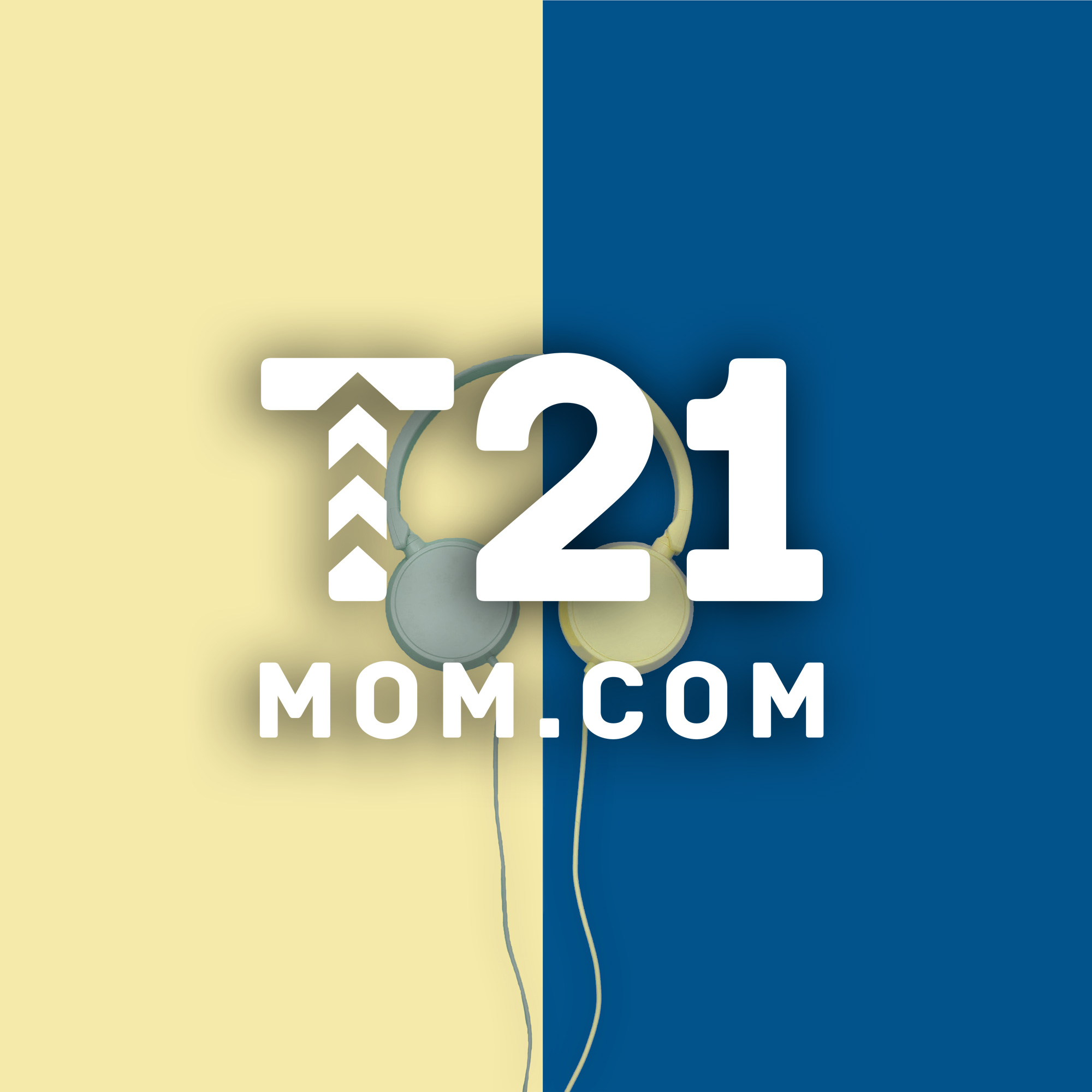
T21Mom-A Down Syndrome Podcast
T21Mom.com
The Collaborative IEP
Ashley Barlow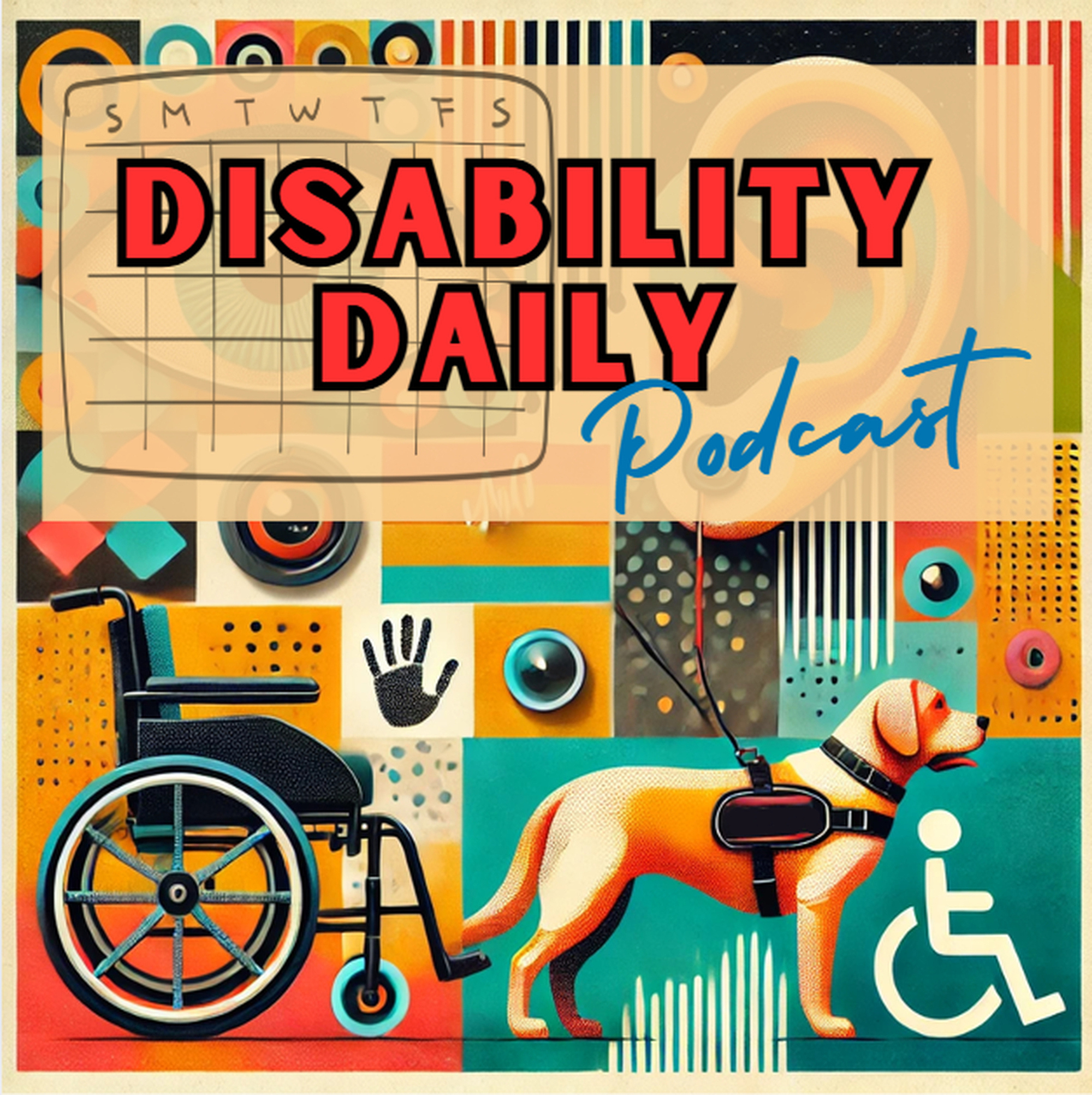
Disability Daily Podcast
Katie Healey, PhD, CPACC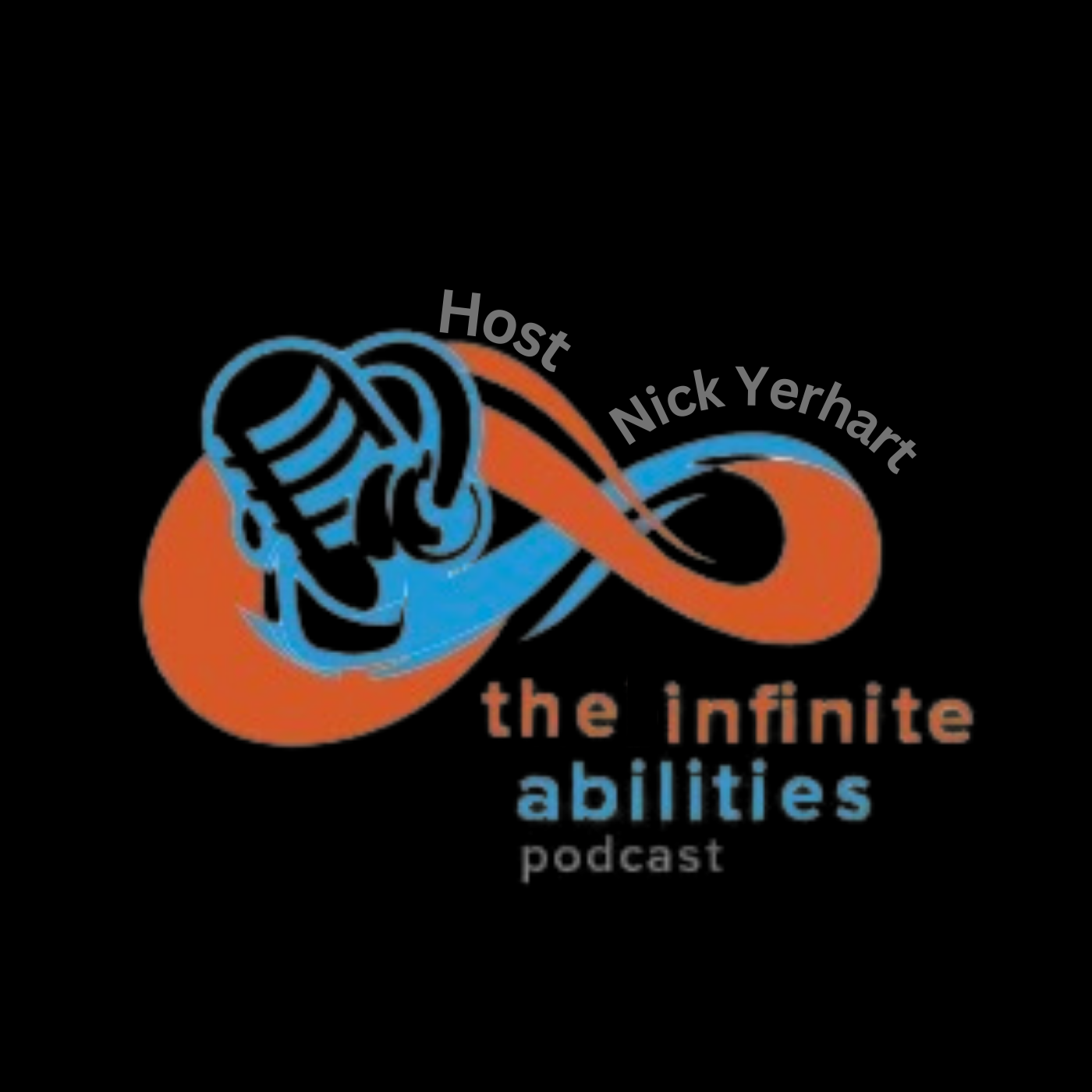
The Infinite Abilities Podcast
Nick Yerhart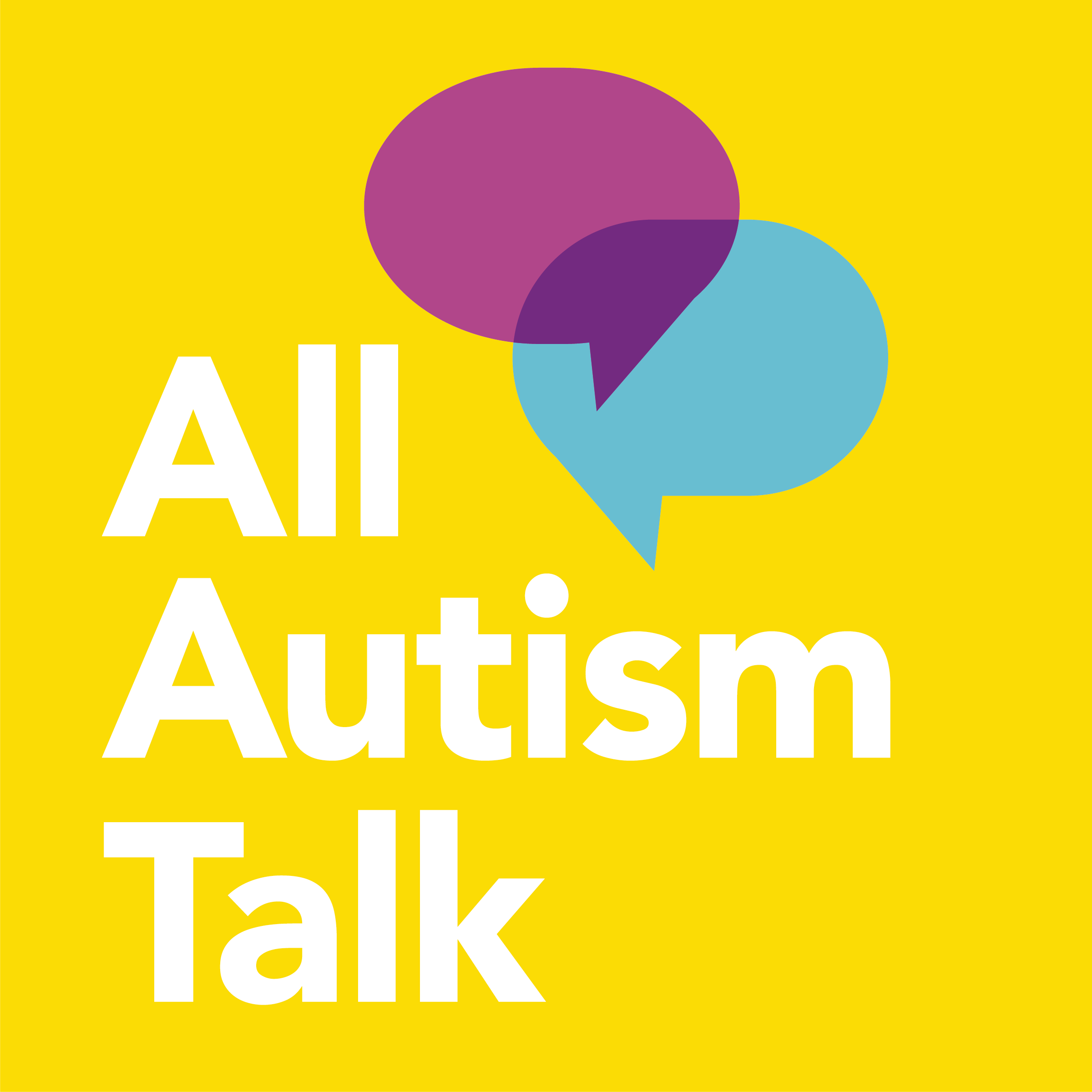
All Autism Talk
All Autism Talk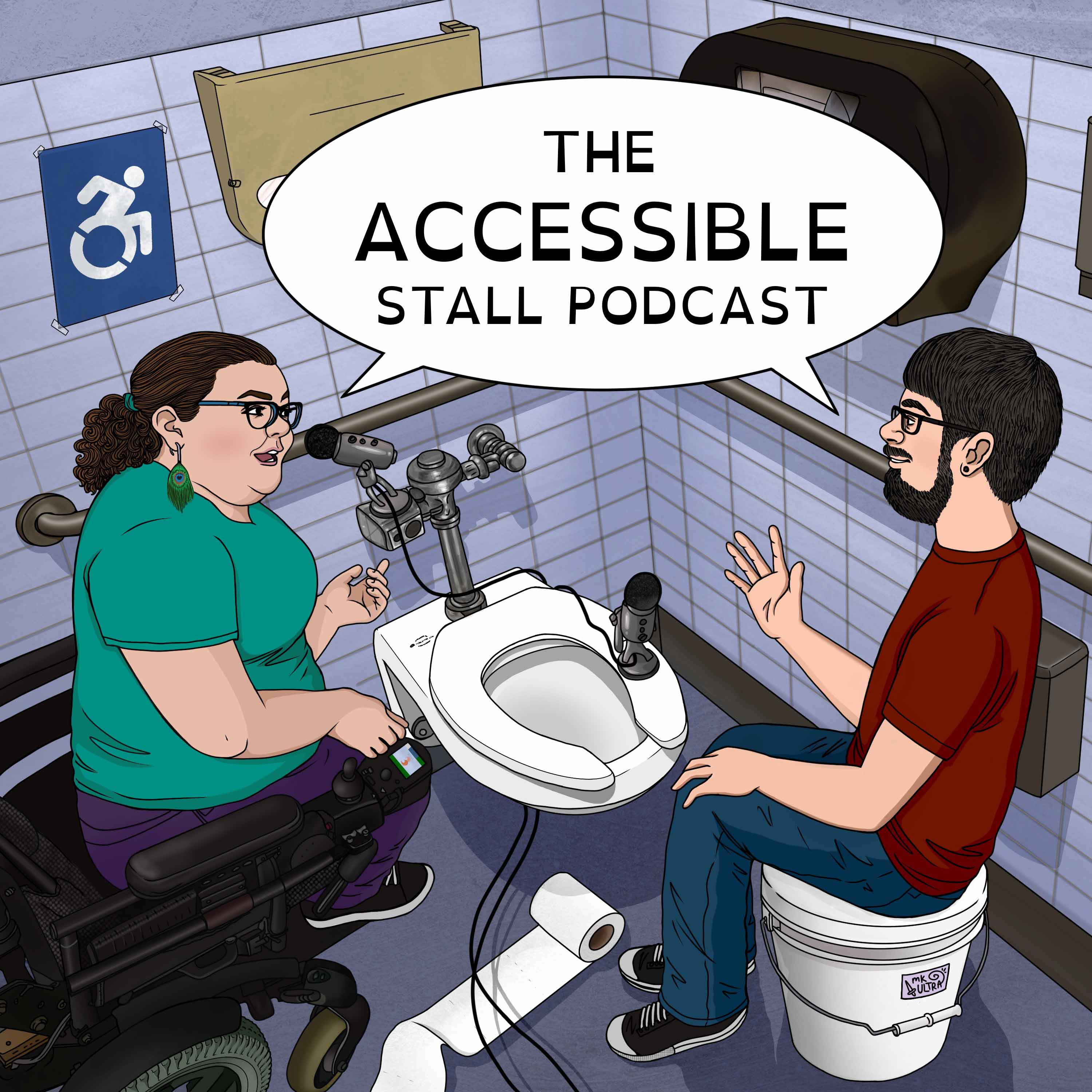
The Accessible Stall
Kyle Khachadurian and Emily Ladau
Disability Deep Dive
Disability Rights Florida
STAY Tuned: Supporting Transition-Age Youth with mental health conditions
STAY Tuned at Transitions to Adulthood Center for Research
Moms Talk Autism Podcast
Shannon Korza, Brittney Crabtree, Tash Dillmon, and Jean Mayer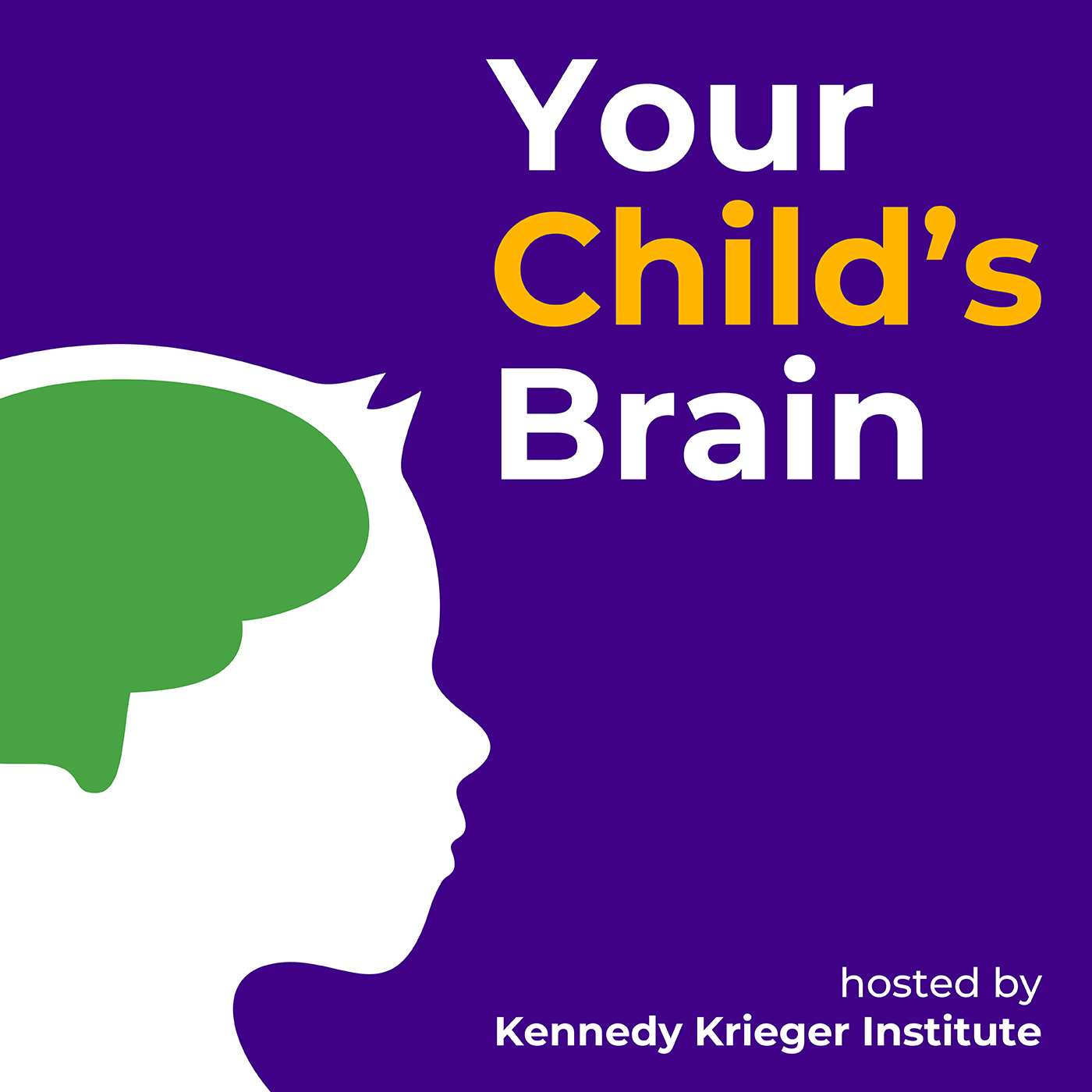
Your Child's Brain
WYPR Baltimore


